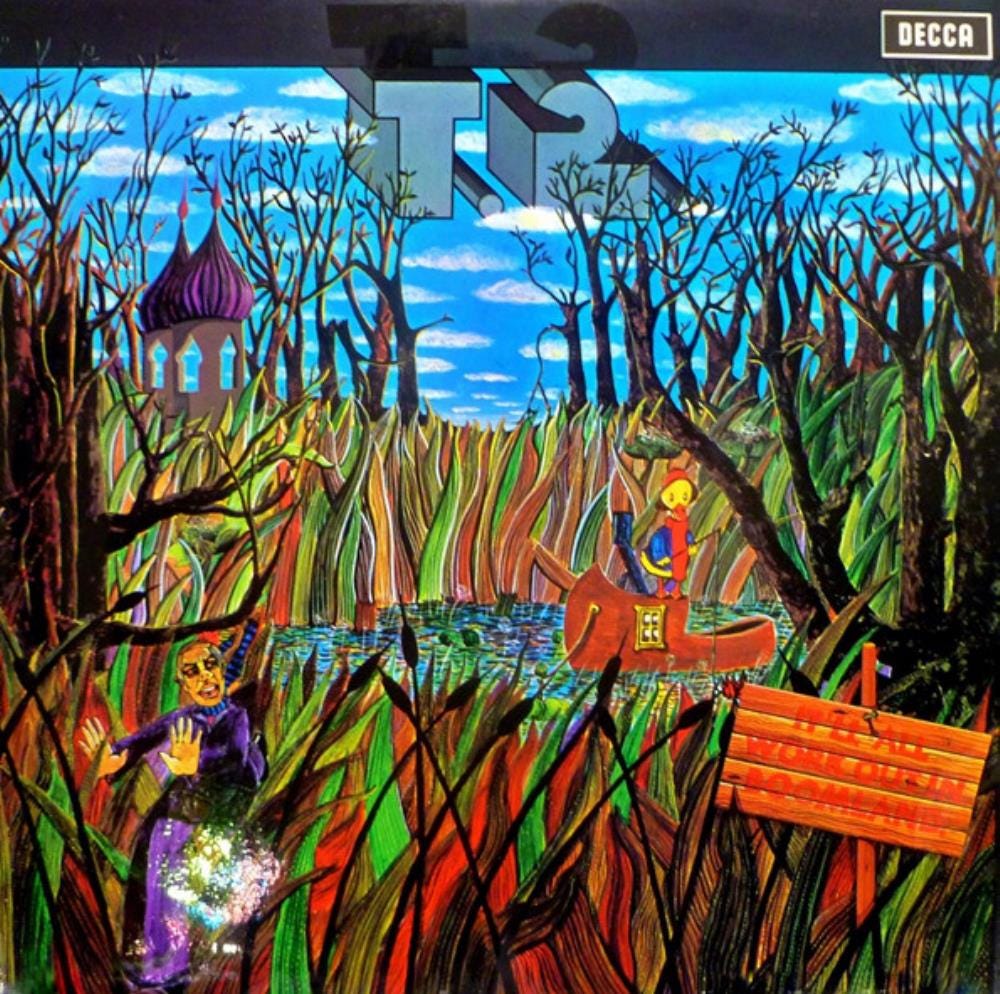EVERY GENRE PROJECT - April 11 - Heavy Psych
Genre of the Day - Heavy Psych
Album of the Day - It’ll All Work Out in Bloomland by T2 (1970)
April 11, 2024
Psychedelic music, as one might expect, takes its name from the psychedelic drug revolution of the late 1960s. Counterculture was big, people were looking to examine the world from a different axis, yada yada yada. But towards the end of the decade, the dark side of the overload of highly psycho-interactive drugs was popping up. A couple months ago, I read Slouching Towards Bethlehem, the iconic series of essays by writer Joan Didion. The collection’s most jaw-dropping moment comes towards the end of a story documenting psychedelic drug use in San Francisco. In a breakaway from Didion’s typical chilly observant mode, she expresses genuine concern at a five-year-old named Susan whose mother gives her acid and peyote every day. I have to think that today’s departure from the psychedelic zeitgeist has something to do with that: the realization that there is such a thing as too much, that these mind-opening substances also have the power to border on the inhumane.
That might be a dark way to start this article, especially in the light of all the promotion I’ve been trying to do for this blog since yesterday now that we’ve hit 100 days, but I feel it was only appropriate given that we’re covering one of the first explicitly psychedelic genres within this column. Towards the end of the ‘60s, alongside that disillusionment with counterculture and psychedelia, guitarists were playing around with much more intense sounding, fuzzy reverb styles. This produces tones that were much more intense and stormy, lending itself to more morose, dark material. While metal didn’t officially exist yet, it would serve as its sonic blueprint.
As psychedelics started to get intense to the point of disillusionment alongside the weary cultural atmosphere, musicians began to riff on that front. They incorporated heavier, dense guitar styles. They embraced more freaked-out, darker, unresolved sounds with structures taken from blues, making riffs longer and more drawn-out. While heavy psych never really had its true moment, it remains essential. It was only loosely defined by a series of unassociated bands. Nevertheless, it remains an important touchstone as a bridge between the first eras of rock and roll and metal with iconic bands like Vanilla Fudge filling in the gap.
T2, like the heavy psych movement as a whole as it quickly coagulated into a more concrete vision of metal, lasted only a few years as a band. However, today’s album that they produced with just three members is one of the most stunning in the psych canon to this day. Over only four songs, they take prog rock to new, sonically obscured and thick heights. “No More White Horses” features organic balms of plinky piano and horns. While those maintain a lushness, they incorporate heavy metallic guitar textures and crashing drums to bring a harshness in to deepen the music. Despite these impulses, the music still maintains a jauntiness amongst the heaviness. On the 21-minute closer epic “Morning” there’s contemplative and languid moments, but they don’t feel overtly dark. These dense compositions don’t leave as much room to breathe as other forms of psych rock, though, making heavy the most apt word for it. As such is the point, though: it creates the most multilayered, enrapturing experience for listeners. Around the 10:30 minute mark, distorted instrumental paranoia and discordant, janky melodies start to set in, an exposé of the darker-edged side of prog rock. As much as it probes musical possibility, it also reflects the culture it was made in a little too on-the-nose: who knew thick, fuzzy guitar could achieve so much. Well, they probably hoped it would.




